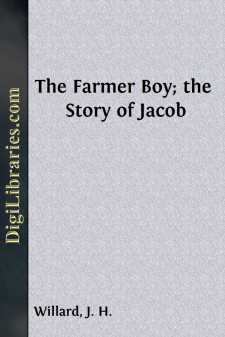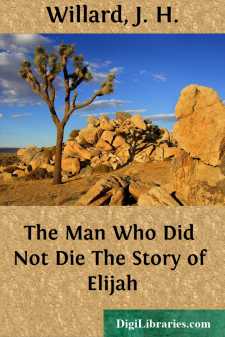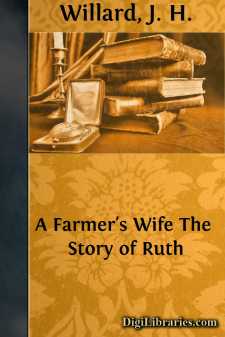Categories
- Antiques & Collectibles 13
- Architecture 36
- Art 48
- Bibles 22
- Biography & Autobiography 813
- Body, Mind & Spirit 142
- Business & Economics 28
- Children's Books 17
- Children's Fiction 14
- Computers 4
- Cooking 94
- Crafts & Hobbies 4
- Drama 346
- Education 46
- Family & Relationships 57
- Fiction 11829
- Games 19
- Gardening 17
- Health & Fitness 34
- History 1377
- House & Home 1
- Humor 147
- Juvenile Fiction 1873
- Juvenile Nonfiction 202
- Language Arts & Disciplines 88
- Law 16
- Literary Collections 686
- Literary Criticism 179
- Mathematics 13
- Medical 41
- Music 40
- Nature 179
- Non-Classifiable 1768
- Performing Arts 7
- Periodicals 1453
- Philosophy 64
- Photography 2
- Poetry 896
- Political Science 203
- Psychology 42
- Reference 154
- Religion 513
- Science 126
- Self-Help 84
- Social Science 81
- Sports & Recreation 34
- Study Aids 3
- Technology & Engineering 59
- Transportation 23
- Travel 463
- True Crime 29
The Farmer Boy; the Story of Jacob
by: J. H. Willard
Categories:
Description:
Excerpt
THE FARMER BOY
THE STORY OF JACOB
Abraham, the father of the great Israelitish, or Hebrew, nation, was the chief, or sheikh, as he would be called now, of his family or tribe, and with his flocks of sheep, herds of cattle, camels and other animals, servants and followers, moved from place to place, adding to his wealth as time went on and making for himself a respected name wherever he went.
God chose Abraham to be the founder of this mighty nation, and at his death promised a continuation of His favor to his son Isaac, who had married Rebekah, the daughter of Bethuel, who was Abraham's nephew. Isaac was an only son and inherited his father's great wealth.
[Illustration: Abraham, the Founder of a Nation.]
Isaac and Rebekah had twin sons whose names were Esau and Jacob, and perhaps no brothers were ever more unlike in their dispositions. Esau grew up to be a hunter. Nothing pleased him so much as to take his bow and arrows and spend days away from home in the pursuit of deer, from whose flesh he made food which his father liked.
Among other customs of that time which seem strange to us now was that of rich men and their wives and their sons as well preparing food with their own hands, although it is done in the East to some extent in these days.
Abraham was certainly a rich man with a host of servants at command, yet the Bible tells us that Sarah, his wife, prepared with her own hands the food for the strangers who visited the patriarch as he sat in the door of his tent by the Oaks of Mamre. We can understand then that the sons of Isaac, who were even richer than his father, prepared food themselves.
Esau was looked upon as the older son and treated accordingly. There were certain privileges which by custom were given to oldest sons at their fathers' deaths, and these things constituted what was called a birthright. In addition to being treated as the older son Esau was also the favorite son of his father.
But Rebekah loved Jacob more than she did Esau. Jacob was of a much quieter disposition than his brother, living near his mother and probably spending much of his time with her. We may think of him as a man who liked to live in comfort and peace, hospitable to strangers, as was the custom of the country, yet all the time wishing, as he looked out over the flocks and herds, that his was to be an older brother's portion when they were divided.
The word Jacob means "supplanter," or one who takes the place of another, and Jacob acted up to the meaning of his name at the first opportunity. It came about in this way.
Jacob was cooking some food one day which smelt and looked very tempting to Esau when he came in hungry and tired to the point of exhaustion from one of his hunting trips. He asked his brother to give him some of this food, and Jacob, seeing a chance to acquire what he coveted, told him he would do so if he would give him his birthright in exchange for it. Probably Esau's hunger was more to him at the moment than any privileges he might have later in life, so he consented and the bargain was made.
...



